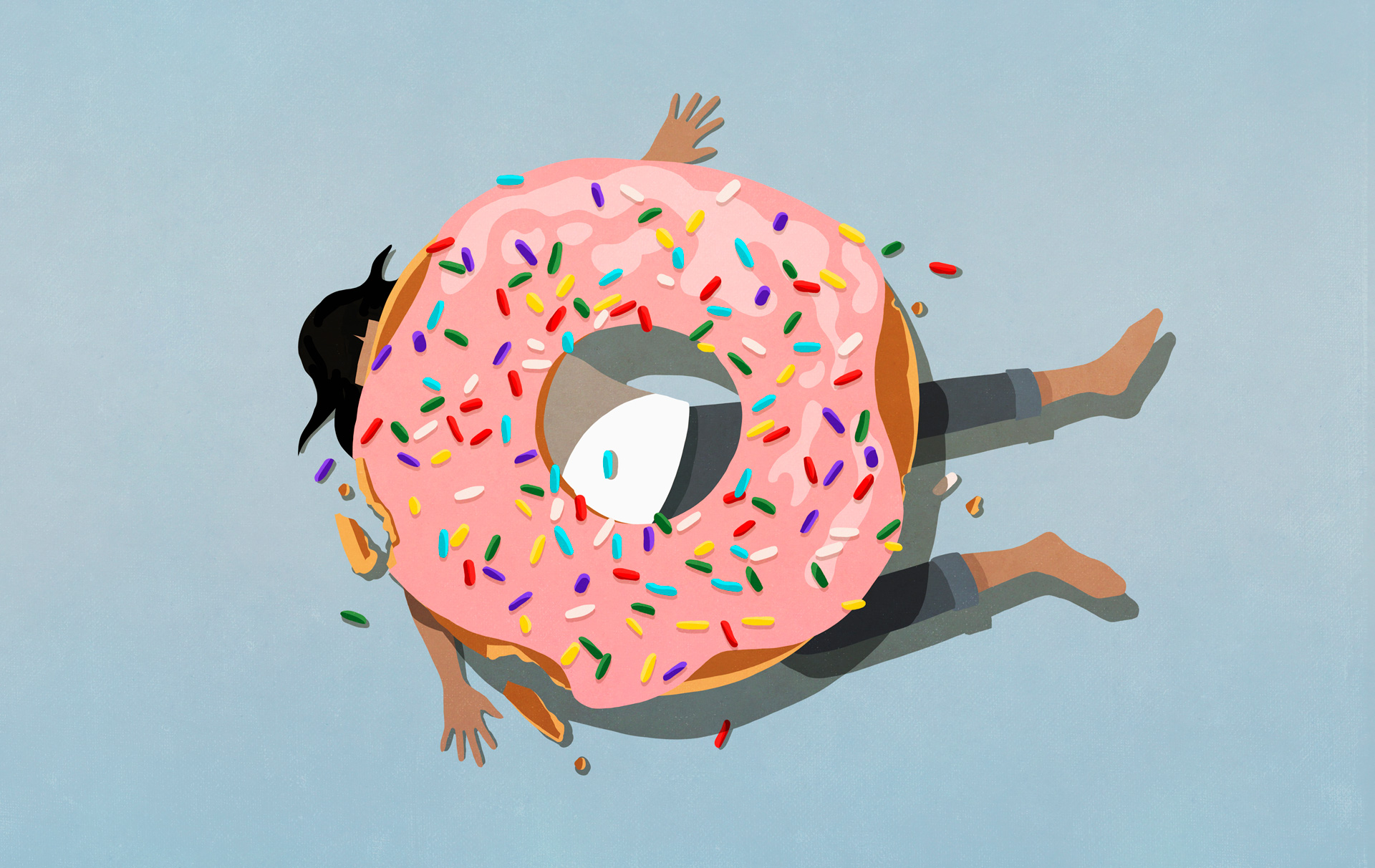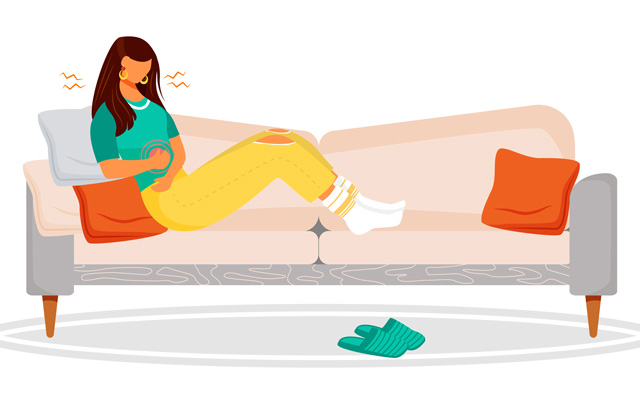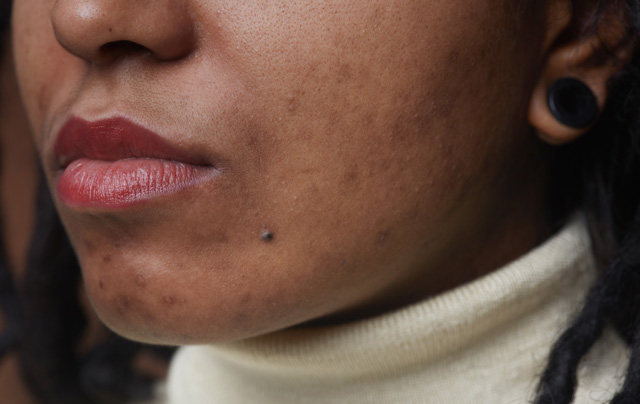What happens when you eat too much sugar? Signs you're eating too much
It’s a wonderful – yet addictive – foodstuff that’s adored worldwide. But when you eat too much sugar your body and mind will suffer.


It’s a wonderful – yet addictive – foodstuff. It’s adored worldwide. But your body and mind can struggle when you eat too much sugar.
The truth is we shouldn't consume the white stuff in large quantities, which is why the sugar-free diet is such a popular meal plan. The recommended daily amount (RDA) for teenagers and adults is just 30g free sugar (that’s added sugar and sugars found naturally in honey, syrup and fruit juice). That's the equivalent of seven sugar cubes. Yet, on average, adults between the ages of 19-64 years consume 58.8g free sugar – almost double what we should be eating.
Children eat too much sugar, too – way too much. Although there is no RDA for children under four, it's important to limit sugar for this age group. The RDA for four-to-six year-olds is 19g (five sugar cubes). For seven-to-10-year-olds it’s 24g (six sugar cubes). But the reality is very different. According a report by the Health Equalities Group children under four eat 36.1g of free sugar a day, and four-to-10-year-olds consume 60.8g. Teenagers eat the most – a whopping 74.2g free sugar daily.
These are worrying statistics. But perhaps it’s not surprising that we eat too much sugar, given that a can of cola can contains 11g, and an average glass of orange juice has around 8g. On top of the obvious sugar found in soda, sweets, cakes, biscuits and so on, there’s hidden sugar in ready meals, pasta sauces and tinned soups – to name a few examples.
How far is this sugar over-consumption affecting us? And what impact is it having on every part of our body – from our skin to our heart? We asked the experts what sugar can do to us and what sort of symptoms we can expect to experience. If, after reading this, you feel like you eat too much sugar don't panic – here’s how to quit sugar and how to substitute sugar for alternatives.
What happens when you eat too much sugar?
1. Low energy
Freyja Hanstein, founder of the Wholesome World app – a wholesome approach to health and wellbeing – explains that an overload of sugar can be responsible for massive dips in energy throughout the day.
‘A high sugar diet will cause spikes in blood glucose levels,’ says Freya. ‘Since high levels of glucose are toxic, the body releases a large amount of insulin to latch onto the excess glucose and distribute it either to cells for energy, or to the liver or fat cells for storage. High levels of insulin will clear a high level of glucose from the bloodstream quickly so there is an immediate dip in glucose from high to low. This can cause energy levels to dip very quickly,’ she explains.
GoodtoKnow Newsletter
Parenting advice, hot topics, best buys and family finance tips delivered straight to your inbox.
‘If you include too much sugar in one go, the body finds it harder to regulate your blood sugar levels so you risk decreased energy levels and feelings of fatigue and tiredness,’ adds dietitian Emily Freeth. ‘This is why it is important to spread out sugars throughout the day, have them in small amounts, and alongside other food groups, such as protein.’
‘Processed sugar and fast breakdown carbs (such as white bread, rice and pasta) are solely beneficial to those with high metabolisms, particularly during exercise. If you are an average person they should be kept under control,’ says Freya.
And if you think a sugar rush will boost your energy think again. Sugar is a quick fix that will make you feel worse in the long run. Instead, eat foods that boost energy, rather than deplete it. ‘The sugar rush tends to come shortly after consumption with increased dopamine levels in the brain – but so does the dreaded crash,’ says Dr Daniel Atkinson, a clinical lead and former NHS GP,. ‘Insulin and hormone levels have risen rapidly and caused blood sugar levels to drop. This sugar slump leaves you feeling tired, irritable and may cause headaches.’
2. Weak immune system
The crash we experience after a sugar rush can also affect our immune system – our key defence against disease and infection. ‘Because of how your body has to treat a sugar binge, your immune system isn't working at its peak,’ says Dr Atkinson. ‘It can take up to five hours for the immune system to properly recover,’ he explains.
Sugar consumption also raises your risk of type 2 diabetes, which can also have a detrimental effect on your immune system. ‘A high sugar diet can cause diabetes, whereby the body struggles to maintain blood glucose levels,’ says Freyja. ‘High levels of glucose in the bloodstream can trigger an inflammatory response which can cause dysfunction of immune responses.’
A weak immune system can cause a host of issues, including repeated infections such as thrush and colds, allergies, slow-healing wounds, gut problems and fatigue.
3. Tooth decay
One of the most common motives for eating less sugar is knowing how much it damages our teeth. ‘We all know sugar is directly connected to tooth decay,’ says Sarah MacDonald, an orthodontic therapist. But why does it cause problems? ‘When consuming food or drinks that contain sugar, the food molecules react with the saliva and bacteria in the mouth and this leads to having plaque on the teeth. If this is left on the teeth, the plaque can begin to dissolve the enamel, which can lead to cavities,’ she explains.
‘Plaque is ultimately a waste product formed by the bacteria in our mouth, so accumulation and stagnation can lead to some unwanted side-effects such as halitosis (bad breath),’ she continues. ‘Brushing two to three times daily will help reduce the volume of bad bacteria. Choose a toothpaste containing fluoride (such as Beverly Hills Formula Perfect White Extreme White, £5.99 at Superdrug) – it contains cetraria islandica extract and Japanese pyrophosphates that ensure naturally enhanced plaque protection, plus isosorbide, which is an innovative ingredient that reduces the growth of bacteria,’ she says. ‘And using mouthwash immediately after consumption of high sugar food and drinks will limit the formation of the bacteria.’
Sugar doesn’t just affect our teeth but our gums, too. ‘Sugar can also lead to gum disease,’ adds Sarah. ‘The early stages of gum disease are usually reversible. However, if left untreated it may advance to periodontitis, which involves both gum tissue and the bone beneath the gum level. The bacteria associated with periodontitis can travel throughout the body, invading joints, connective tissue and organs such as the kidneys, liver, lungs and heart,’ she warns.
Early signs of periodontitis include red, swollen or tender gums that bleed easily.
4. Mood swings
Sugar can also impact on our emotional stability. 'Just 30 minutes after consuming a lot of sugar, your heart rate will accelerate and you might begin to sweat, as epinephrine and cortisol are released by the body,' says Dr Atkinson. ‘This is due to the renal system identifying the sugar influx as the body in stress.’
This stress response can stimulate negative emotions. Freyja explains further why sugar affects us mentally: ‘Highly fluctuating blood glucose levels not only cause fluctuating energy levels but also mood changes. The brain runs primarily on glucose so it’s hardly surprising that poor glucose regulation can cause irritability, anxiety and cognitive impairment.'
Studies are emerging linking sugar consumption to depression, too. There could be a number of reasons for this: namely the side effects of diabetes (according to Diabetes UK 40% of those diagnosed with the condition “have struggled with their psychological wellbeing”; the constant mood swings caused by a sugar high followed by a sugar crash; and the link between sugar and inflammation in the body).
5. Insomnia
Believe it or not, the amount sugar in your diet can also be responsible for sleeplessness. ‘High or low blood sugar can cause insomnia,’ says Freyja. ‘And consistently consuming a high sugar diet can cause sugar cravings which at night may wake you,’ she states.
Freyja adds: ‘Research has also shown that people who have diets high in sugar spent less time in deep, slow-wave sleep,’ she explains. This means not only did these people sleep less well they were more restless at night, too. If you have trouble sleeping try to cut down on sugar and avoid it completely in the evenings.

What are the long-term effects of eating too much sugar?
In recent years, sugar has been linked to a range of serious diseases. ‘A diet that includes too much sugar causes a continuous increase in insulin levels that eventually leads to insulin resistance, obesity and type 2 diabetes,’ says Holly Zoccolan, a nutritional health coach. A high sugar diet can also affect our gut health and our heart.
1. Type 2 diabetes
Type 2 diabetes is caused almost exclusively by lifestyle factors. This includes a poor diet. ‘Around 90% of diabetes cases are type 2,’ says Dr Atkinson. ‘While type 1 is caused by the immune system attacking the pancreas, type 2 typically develops later in life. Several factors can contribute towards it, including diet and lifestyle. It’s a condition that impacts on everyday life and can lead to other health issues such as heart disease, vision loss and kidney problems,’ he says.
‘Consuming sugar affects your blood glucose levels, which can lead to insulin resistance over time, leading to the development of type 2 diabetes,’ explains Holly. ‘By consuming too much sugar on a regular basis our blood sugar levels increase too often and leads to insulin – the hormone that regulates your blood sugar levels – to become overworked and thus stop working as it should. This is known as insulin resistance, which is directly linked to type 2 diabetes. Therefore, by eating sugar on a regular basis, you are significantly increasing your risk, ‘ she says.
Early signs of type 2 diabetes include needing to wee more often, feeling thirsty, and unexplained tiredness.
2. Heart disease
Sugar doesn’t let your heart off the hook, either. Sugar can lead to obesity and excess fat. Your heart is at greater risk of cardio-vascular disease if you are overweight.
In a study published in 2014 in JAMA Internal Medicine, Dr. Frank Hu, professor of nutrition at the Harvard T.H. Chan School of Public Health, found a direct link between a high sugar diet and a greater risk of dying from heart disease. The survey, which took place over 15 years, found that people who got between 17%-21% of their calories per day from added sugar had a 38% higher risk of dying from heart disease, compared to those who only consumed 8% of their calories per day from added sugar.
‘A high sugar diet can also lead to high levels of triglycerides in the bloodstream which may lead to hardening of the arteries and an increase in risk of stroke, heart attack and heart disease,’ warns Freyja.
3. Obesity
‘Studies significantly link obesity to a diet too high in sugar,’ says Holly. ‘There are many studies to support this. Eating too much sugar leads to weight gain and hormonal imbalances, which makes losing the added weight even more difficult to lose. It's a vicious cycle,’ she explains.
‘Due to the excess weight gain caused by overconsumption of sugar, the lack of nutrients in high sugar products and the large amount of unnecessary calories, this leads to obesity and a number of other significant health problems,’ she warns.
4. Poor gut health
‘A diet high in sugar usually means a diet low in nutrients and whole foods. This means that our gut health will suffer too,’ says Holly. ‘If our diet is full of sugar, it can eliminate the good bacteria that resides within our gut. This creates an imbalance within the gut bacteria and causes damage to the gut as well as inflammation and digestive issues,’ she explains. ‘It can even result in depression due to the gut/brain connection.'
What happens to your skin if you eat too much sugar?
You might not expect to see the damaging effects of sugar in your skin but it suffers too. ‘Sugar has a complicated relationship with many aspects of our appearance,’ says Dr Olivier Amar, a leading plastic surgeon and skin expert. ‘We all know the impact it can have on our weight but it can affect our skin in a number of ways.'
1. Sugar and acne
‘Increased sugar consumption can worsen conditions such as acne, eczema and rosacea,’ states Dr Amar. ‘It’s an inflammatory food and it disrupts the body’s hormonal balance as insulin levels rise and fall throughout a day of sugar consumption. This can also affect the production of sebum – an oily substance produced by our skin that, in high levels, can make acne worse. It's normally our protective barrier but too much can block pores and lead to spots and other conditions,’ he explains.
Sugar could also contribute to acne in another way – by reducing the function of our white blood cells. ‘White blood cells are responsible for combating infection. Their suppression paves the way to the perfect environment for acne as bacteria evolves within the layers of the skin,' explains Tammy Richards, a skin specialist and health practitioner.

2. Ageing
We’re all aware of how our skin will change – or has changed – as we get older. But can it prematurely age because we eat too much sugar? According to dermatologist Dr Carl Thornfeldt, inflammation is one of the things that can damage our skin the most.
Dr Thornfeldt recommends a diet low in sugar for anyone who wants to improve the condition of their skin. ‘Refined sugar is the poison that drives all inflammatory (skin) conditions,’ he says. ‘Acne, rosacea, skin cancer – they are all triggered by chronic inflammation.’
‘It can also speed up the ageing process of the skin by increasing the rate of collagen degradation. As we know this is a really important part of keeping skin supple, elastic and young looking,’ says Dr Amar.
Sugar and cancer: is there a link?
To date, there hasn’t been conclusive evidence to suggest that sugar causes cancer. But there does seem to be some relation between the two. Tumorous cells consume huge amounts of glucose (sugar) to fuel their growth. Knowing this, it’s fair to assume that a high sugar diet could potentially encourage cancerous cells.
'We know that being overweight or obese is one of the biggest causes of cancer after smoking,’ says Freyja. ‘And a study in 2019 did find that the consumption of sugary drinks was significantly associated with the risk of overall cancer, regardless of body weight,’ she states.
‘High levels of circulating insulin-like growth factor (IGF1) are linked to obesity and type 2 diabetes. This may be due to high sugar consumption,’ she continues. ‘And high serum concentrations of IGF1 have been linked to an increased risk of breast, prostate, colorectal and lung cancers.’
While there’s no definitive proof, it will benefit you to adapt your diet. 'Avoid processed food and opt for natural slow release sugars and carbohydrates to provide a lower GI diet,’ says Freyja. ‘Consuming fresh vegetables, fruit and wholegrains provide more fibre, which slows the digestion of natural sugar. This gives potential to decelerate cancer growth, rather than processed sugar intake.'

Debra Waters is an experienced online editor and parenting writer. She also has a strong background on health, wellbeing, beauty, and food. She currently writes for Goodto and Woman&Home, and print publications Woman, Woman’s Own, and Woman’s Weekly. Debra has written for What to Expect, Everyday Health, and Time Out. In addition, she has had articles published in The Telegraph and The Big Issue.